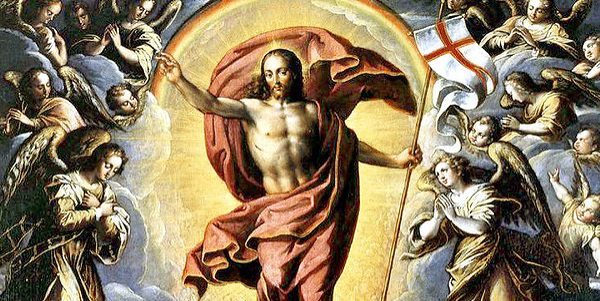
The resurrection is often packaged around cute little bunnies and plastic Easter eggs full of candy.
But resurrection isn’t soft and cuddly. Resurrection is dangerous. It is risky. It is not safe.
Resurrection is dangerous because it transforms how we relate to our fellow human beings, specifically to our enemies. And it transforms our understanding of the divine.
Throughout human history we have been caught up in cycles of violence – and we thought the gods were caught up in the same cycles of violence.
For example, the resurrection of Jesus is often compared to myths of resurrected gods throughout the ancient world. One such myth is about an Egyptian god named Horus and his father Osirus. Horus is portrayed as a good god that fought against the forces of evil, namely, an evil god named Set, who killed Horus’s father, a god named Osirus. Fortunately, Horus and his mother were able to resurrect Osirus. But the question remained, what should they to do about Set?
The resurrected Osirus asked Horus a question, “What is the most glorious deed a man can perform?”
Horus answered, “To take revenge upon one who has injured his father or mother.”*
And that’s what Horus did. Once he defeated Set in violent battle, Horus was acclaimed to be “lord of all the earth” and “once again established order and justice.”
There is a certain amount of truth within this myth. Throughout history, humans have thought that the only way to contain evil and violence is with our own violence. Horus wanted to destroy Set in order to establish peace, order, and justice. But the myth is honest about another motivation – no matter how good and just our violence seems to be, it always carries with it a motivation for revenge.
Ultimately, violence cannot be contained. It always escalates into cycles of increasing revenge. We see this cycle in ancient myths, but we also see it in the modern world. Just like the violence between Horus and Set, the United States believe that the way to deal with evil is to violently defeat our enemies. How does the United States respond to ISIS? We seek revenge by killing them.
In other words, Horus is our divine model.
The resurrection of Jesus tells a radically different story than the myth of Horus. Jesus was resurrected not to seek revenge against his enemies. No, the resurrection of Jesus is not a violent myth. The resurrection of Jesus is the Good News that God isn’t out for revenge. Rather, Jesus was resurrected to reveal God’s radical offer of peace and forgiveness.
After his death, the disciples were consumed with fear and locked themselves in a room. The resurrected Jesus suddenly appeared to them. While there, Jesus repeated the phrase, “Peace be with you” three times.
Why did Jesus have to repeat that phrase? Because if this was a myth like other resurrection myths, the disciples would have thought that the resurrected Jesus would seek revenge. The disciples had a lot to fear; after all, they just betrayed, denied, and abandoned Jesus to his death.
But the resurrection of Jesus was no myth. It was Gospel. It was the Good News that God doesn’t hold our sins against us, but forgives us, offers us peace, and invites us to extend that peace to others.
Most of us don’t believe in Jesus. We believe in the gods of myth. We believe in Horus. We believe in violence. Whether our next president is Donald Trump, Ted Cruz, or Hillary Clinton, if our enemies hit us, we will hit them back. And we will fool ourselves into believing that we will hit back so hard that our enemies will never even think about hitting us again. And the cycle of violence will continue. And Horus will be our god.
Unless we decide to believe in the resurrection of Jesus. But faith in the resurrection is dangerous because the resurrection is God’s alternative to the myths of violence. When you believe the resurrection of Jesus, you can no longer fight violence with violence in the name of God. Rather, you “fight” violence with forgiveness. You don’t engage evil with more evil, but with love. Resurrection is dangerous because our enemies may respond to our offer of peace with violence. That’s the risk of faith in the resurrection of Jesus.
But that risk is our greatest hope for a more peaceful world.
*Told in World Mythology, second edition, edited by Donna Rosenberg, pages 165-168











